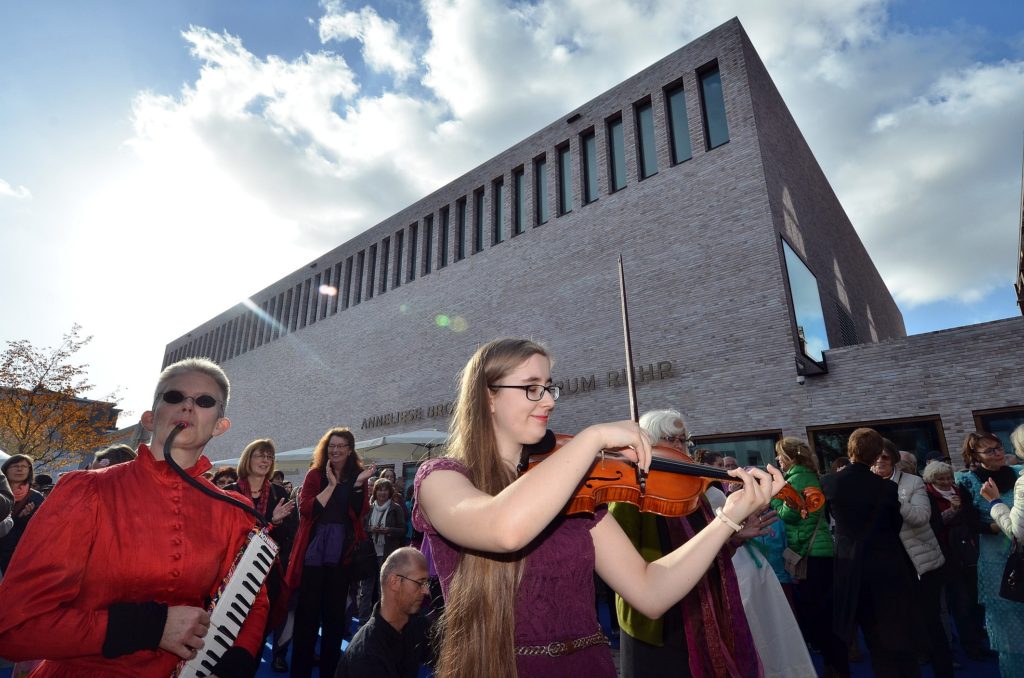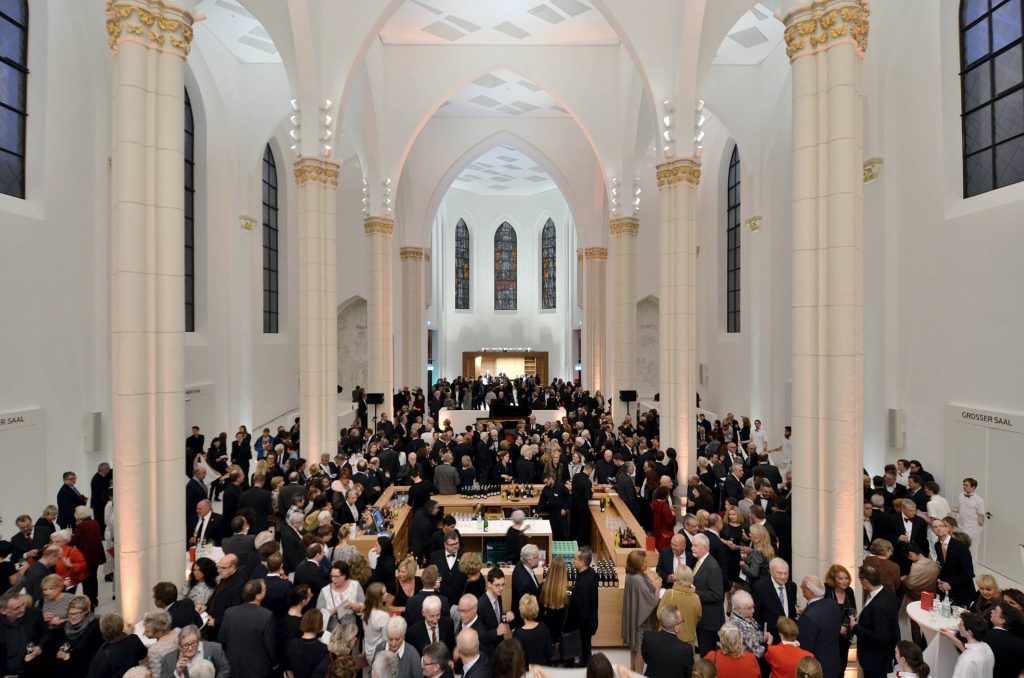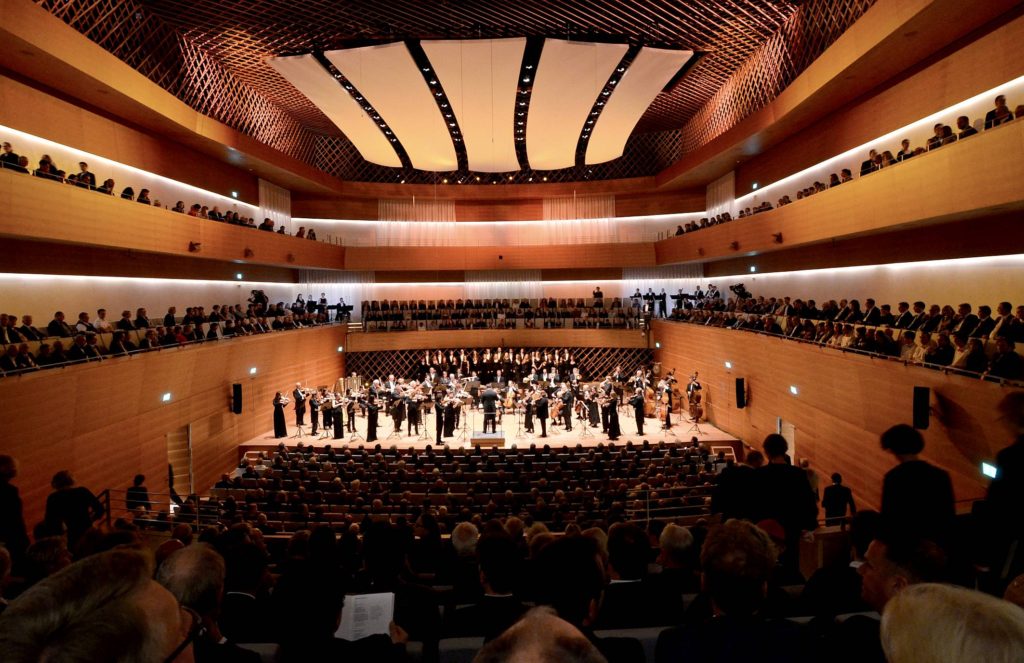We in Britain have only seen the beginning of our government’s scorched-earth policy towards culture outside London. Unavoidable local authority cuts – unavoidable because the only alternative would be to cut care for the sick, old and disabled – are now progressively silencing theatre companies and orchestras up and down the land, and closing down libraries and museums. The obverse of this is that there’s now little talk about new buildings. Tate Modern’s bold extension was lucky to get in under the wire, and last year’s excited buzz about a new Barbican concert hall (designed to revive Sir Simon Rattle’s will to live) has gone very quiet: feasibility plans for it are still going ahead, and the requisite £400 million may still be extractable from deep City pockets, but there’s absolutely no groundswell of support for it from musicians, let alone from putative audiences. The climate of opinion is firmly set against vanity projects of that sort – viz the likely demise of Joanna Lumley’s preposterous dream of a Garden Bridge across the Thames.
Theatres and galleries are closing in Germany too, but over there it’s not all gloom. In January the extraordinary Elbphilharmonie concert hall will finally open in Hamburg after a long and turbulent gestation, while a smaller concert hall has just opened in Bochum thanks to the will of local people to support it: 20,000 citizens of this economically-depressed Ruhr city have made donations to help turn it into a reality. The story of how it evolved, against a backdrop of a local recession, is both inspiring and instructive.
photo credit: Lutz Leitmann
In the Second World War the city was bombed flat, and the coal and steel industries which had made the Ruhr rich were completely destroyed. Subsequently things looked up with Nokia and General Motors opening factories, but both have now pulled out, leaving the city almost broke. The city’s university is becoming the focus for a third boom, this time in ‘knowledge’ industries based on medical science, software, and engineering. But Bochum is far from being awash with cash, which makes the opening of the Annaliese Brost Musikforum Ruhr all the more remarkable, especially given the fact that fine concert halls already exist in nearby Essen and Cologne.
Michael Townsend, the city’s director of culture and sport, is a Briton who has lived all his life in Germany, and he speaks the sort of language we in Britain still hear from left-leaning local leaders. Surveying recent German theatrical closures, he finds it ridiculous that one of the richest countries of the world should be taking an axe to culture. ‘So in Bochum we decided to do the opposite’.
The Bochum Symphony Orchestra, founded in 1919, had long been in search of a home, and the concept of a purpose-built hall for them – as opposed to the makeshift venues they have been forced to play in – has been kicked around for many years. One idea was for it to be built in the courtyard of an old post office, another for it to be sited in a former steelworks. Then there was a plan to demolish St Mary’s, a deconsecrated Neo-Gothic Roman Catholic Church, and to build the new hall on its site plus an adjoining piece of wasteland. An architectural competition was also held for a concert hall in a park.
photo credit: Lutz Leitmann
Meanwhile a campaign was launched to save the church – a graceful building – from destruction. That prompted a Bochum businessman named Norman Faber to enter the debate like a theatrical deus ex machina. He announced that he would give five million Euros, provided two conditions were met: that the new hall should be built on the wasteland in question, and that the people of Bochum should contribute a further two million for it. The orchestra then created its own foundation; complicated negotiations followed between it and the city, with EU money playing a growing part; when the Ruhr got its turn as Cultural Capital in 2010, the whole process was galvanised.
The church, it had also been realised, could be converted without difficulty as an adjoining – but separate – chamber hall. Then came the eureka moment: why shouldn’t church and hall be umbilically connected? That is what has now happened, for a total cost of 38 million Euros (fourteen times less than the estimated cost of the Barbican’s new edifice). The restored church now also functions as a foyer for the new hall. A significant proportion of the 14 million Euros contributed in the form of donations has come in five- and ten-Euro notes; Townsend and his colleagues had hoped for 10,000 donors, but they got twice that number. As he now enthusiastically points out, ‘You can’t oppose the will of twenty thousand donors.’
I have never seen such a beautiful foyer – bathed in soft light, the high arches stretch inspiringly heavenwards – but the auditorium itself is underwhelming. The architects were apparently instructed to obey the requirements of the acousticians, with the result that the hall, bounded by cliff-faces of plain and unadorned wood, has a severe look; if one were feeling charitable, one might say it suggests a galleon under full sail. And with only 960 seats, its capacity is relatively small: this was a policy decision, based on the estimated size of the audience, and on the desire for concerts not to seem sparsely attended. And there is some point to that argument: nothing looks emptier than the Royal Albert Hall when it’s half full.
photo credit: Lutz Leitman
The work which opened the inaugural performance was a suitable reflection of what the city had achieved against the odds. Stefan Haucke’s Baruch ata Adonaj – Gesegnet seist du, Herr was the cantata-setting of a Hebrew benediction whose staging brought in several of the many local choirs from this intensely musical region; under conductor Steven Sloane, baritone soloist Martijn Cornet, three treble soloists, and the Bochumer Symphoniker negotiated its shifting tonalities with passionate commitment. When the forces employed are chamber-scale, the acoustic is excellent, but when it’s a full-on Mahlerian symphony orchestra playing fortissimo, the sound becomes a bit boiled.
The following day was open-house, with dozens of local ensembles taking turns onstage, and with half the city coming in to watch. No sign among them, it has to be said, of the new migrant community – 5,000 Syrians, Afghans, and Iraqis – who have recently settled in Bochum, but Sloane and Townsend insist that they have them also in their sights.


